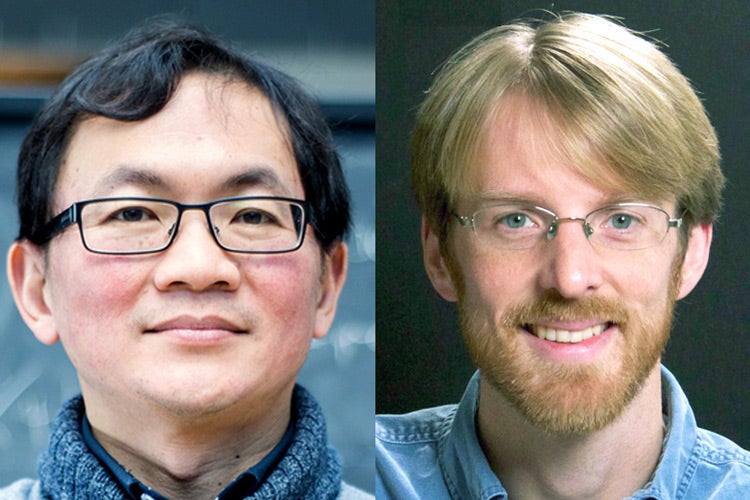
CHIME radio telescope collaboration wins Brockhouse Canada Prize
Published: October 25, 2022
A cross-Canada collaboration including the University of Toronto has won the prestigious Brockhouse Canada Prize for Interdisciplinary Research in Science and Engineering from the National Science and Engineering Research Council (NSERC) for its groundbreaking insight into astrophysical mysteries.
The award recognizes outstanding Canadian teams of researchers from different disciplines engaged in research that draws on their combined knowledge and skills – and has produced a record of excellent achievements in the natural sciences and engineering.
The Canadian Hydrogen Intensity Mapping Experiment (CHIME) is a groundbreaking radio telescope – one of the most novel and extraordinarily powerful in the world – located at the Dominion Radio Astrophysical Observatory in B.C. It is described by NSERC as “one of the biggest success stories in Canadian astrophysics.”
“CHIME’s success arose from thinking outside the box and innovating without constraints of convention,” says Ue-Li Pen, a professor in the Faculty of Arts & Science’s Canadian Institute for Theoretical Astrophysics and a CHIME member. “The experiment leveraged leading Canadian expertise across the country to implement the novel cosmological intensity mapping concept pioneered in Toronto.”
“Building CHIME took a huge effort from the whole team, years of long nights for students, faculty and engineers across Canada,” says Keith Vanderlinde, a professor in the Faculty’s department of astronomy and astrophysics, Dunlap Institute for Astronomy & Astrophysics and a CHIME member. “It’s been amazing to watch the telescope come to life and start pouring out science.”
With files from NSERC
Read the Faculty of Arts & Science story



